DAY2 All Speakers for 19 July 2018
Regional Programme Manager for Atmosphere, the International Centre for Integrated Mountain Development (ICIMOD)
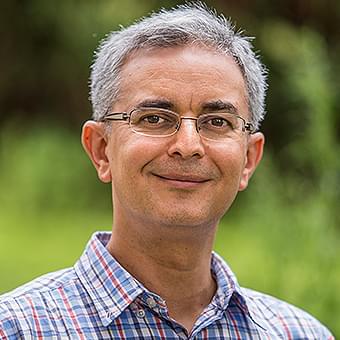
Arnico Panday
Regional Programme Manager for Atmosphere, the International Centre for Integrated Mountain Development (ICIMOD)
Arnico Panday is Regional Programme Manager for Atmosphere, at the International Centre for Integrated Mountain Development (ICIMOD), headquartered in Kathmandu, Nepal. He was born in Switzerland to a Swiss mother and a Nepali father, and grew up mostly in Nepal. He received a Bachelor’s in Environmental Science and Public Policy from Harvard University, a Master's in Land Resources from the University of Wisconsin-Madison, and a Doctor of Science in Atmospheric Science from the Massachusetts Institute of Technology (MIT). He conducted postdoctoral research at MIT and Princeton, and served on the faculty at the University of Virginia before joining ICIMOD to build up its Atmosphere Programme. His team addresses air pollution in the Hindukush Himalaya, including its science, impacts and mitigation.
President, Ibaraki University
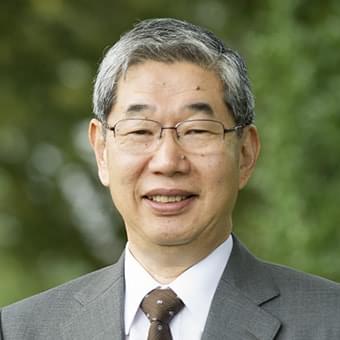
Nobuo Mimura
President, Ibaraki University
Nobuo Mimura graduated from the Faculty of Engineering of the University of Tokyo in 1974, and was granted a doctoral degree in urban engineering in 1979. He began his professional career as Research Associate at the University of Tokyo in 1979, where he started research in coastal engineering. Since then, he served as Associate Professor at the University of Tokyo, and Professor at Ibaraki University. He specializes in global environmental engineering and coastal engineering. He is intensively engaged in the study of climate change impact assessment and adaptation in Japan, Asia and small islands in the South Pacific. He also served as coordinating lead author of the Intergovernmental Panel on Climate Change (IPCC) and as an advisor to several ministries of Japan as well as international bodies such as the World Bank. He has been President of Ibaraki University since 2014.
President, IGES
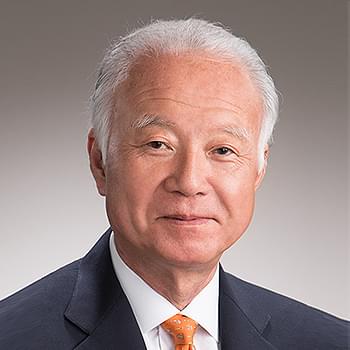
Moderator
Kazuhiko Takeuchi
President, IGES
Kazuhiko Takeuchi graduated from the Department of Geography, the University of Tokyo in 1974. He obtained M.Agr. and Ph.D. from the Graduate School of Agriculture, the University of Tokyo. He served as a Professor at the Asian Natural Environmental Science Center, and as Professor at the Graduate School of Agricultural and Life Science at the University of Tokyo from 1997 to 2012. He also served as a Vice-Rector and Senior Vice-Rector at the United Nations University from 2008 to 2016. He has been Director and Professor/Project Professor of the Integrated Research System for Sustainability Science (IR3S) at the University of Tokyo since 2012. He took up the position as President, Institute for Global Environmental Strategies (IGES) in July 2017. He has served, inter alia, as a Vice-President of the Science Council of Japan, Chair of the Central Environmental Council, Government of Japan, and Editor-in-Chief of the journal Sustainability Science (Springer Nature).
He specialises in landscape ecology, landscape planning, and sustainability science.
Chief Director, National Institute for Environmental Studies (NIES)
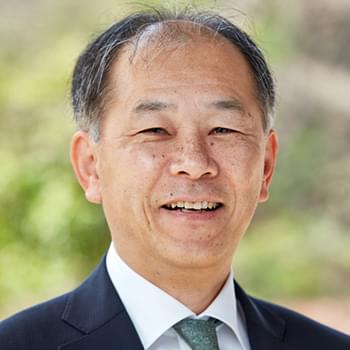
Chiho Watanabe
Chief Director, National Institute for Environmental Studies (NIES)
Chiho Watanabe is Chief Director of the National Institute for Environmental Studies, National Institute for Environmental Studies (April, 2017), as well as Professor Emeritus of the University of Tokyo. His specialty fields are human ecology, environment and health, environmental toxicology. He holds a Doctor of Health Sciences (The University of Tokyo, 1991). His publications include "Sustainability challenges: Elucidating sustainability-health intersections" (co-edited, Current Opinion in Environmental Sustainability), "Human ecology" (co-edited by Asakura Shoten), "Science of toxicity" 2017, 25 Special Issue) etc. He has held positions including Vice Chairman of the Society of Human Ecology (2011-2017), and Chairman of the Japan Health Association (2017~).
Director General, Global Environment Department, Japan International Cooperation Agency (JICA)
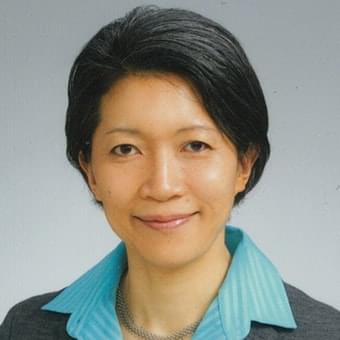
Megumi Muto
Director General, Global Environment Department, Japan International Cooperation Agency (JICA)
Prior to her appointment as the Director General of the Global Environment Department in April 2018, Megumi Muto represented JICA at the OECD as the Chief Representative in France. Before transferring to Paris in October 2015, she was responsible for the Philippines and the Pacific.
She has written extensively in the area of impact evaluation for academic journals such as World Development and Journal of African Economies. She also co-authored books with the World Bank and/or the Asian Development Bank on the impact of climate change on Asian coastal mega cities and industrial clusters in Africa.
She holds a Ph.D. in development economics from GRIPS, MPA from Princeton University, EMBA from HEC Paris and BA from Keio University.
Deputy Director, Climate Change Programme Department, National Environment Agency, Republic of Singapore
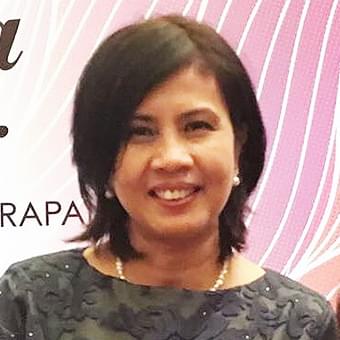
Rohaya Saharom
Deputy Director, Climate Change Programme Department, National Environment Agency, Republic of Singapore
Rohaya Saharom has been working in the field of environmental protection and management for more than 25 years. She started her career with Singapore’s Ministry of the Environment (MEWR) in 1990 and joined the National Environment Agency (NEA) in 2002.
In her previous role as Deputy Director (Pollution Control Department) in NEA, she oversaw the implementation of pollution control programmes related to air and water quality, hazardous wastes and chemicals, vehicular emissions and construction noise, including issues related to environmental agreements to which Singapore is a Party.
In the Climate Change Programme Department she is currently involved in the development of operational framework and regulations for Carbon Tax implementation in Singapore which she will oversee when it commences in 2019.
Regionally, she has worked and collaborated with ASEAN counterparts in several ASEAN working groups on various regional issues related to transboundary haze, hazardous wastes and chemicals and climate change impacts.
She holds a B.Eng (Chemical) and a M.Sc. (Environmental Engineering) from the National University of Singapore.
Regional Director, UNEP Regional Office for Asia and the Pacific (UNEP-ROAP)
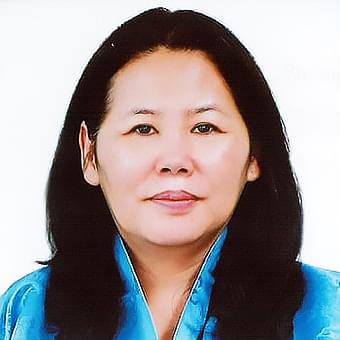
Dechen Tsering
Regional Director, UNEP Regional Office for Asia and the Pacific (UNEP-ROAP)
Dechen Tsering was appointed as the regional director of UN Environment in Asia and the Pacific in March 2017. As the regional arm of UN Environment, headquartered in Nairobi, Kenya, the Asia-Pacific office works with governments, local authorities and the private sector to develop and put into place cleaner and safer policies and strategies that encourage the efficient use of natural resources and reduce risks for humans and the environment.
Ms Tsering has held management and leadership positions with the United Nations and has over 25 years of experience in national government and intergovernmental organisations. She has been actively involved in intergovernmental negotiations as a key negotiator for least-developed countries and contributed to the establishment of the Least Developed Countries Fund and the Least Developed Countries Expert Group. She also has experience in the management of complex development projects.
She comes to UN Environment from the United Nations Framework Convention on Climate Change secretariat, where she served as director of the Finance, Technology and Capacity-building Programme. In that position, she supported international co-operation on mobilisation of finance, technology development and transfer, and capacity building to enable countries to take enhanced action on climate change. Prior to that position, she was the deputy regional director of UN Environment in Asia and the Pacific.
She holds a Ph.D. in forest economics and policy from the Federal Institute of Technology, Zurich. She also has a Master’s degree from Georgetown University and undergraduate degrees from the University of California, Berkeley.
Programme Director, Natural Resources and Ecosystem Services Area, IGES
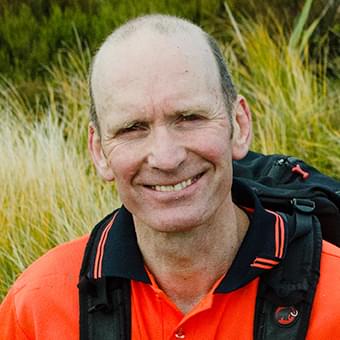
Moderator
Henry Scheyvens
Programme Director, Natural Resources and Ecosystem Services Area, IGES
Henry Scheyvens holds a Ph.D. in Political Science from Monash University and a MPhil in Development Studies from Massey University. He has taught at several universities in New Zealand, Australia and Japan. He joined IGES in 2004, where he now serves as the Area Leader of the Natural Resources and Ecosystems Services Area. His research interests centre around poverty, livelihoods and rights issues. In the past few years, his research has focused on timber legality and sustainability, participatory forest mapping and monitoring, REDD+ readiness, and inclusive financial services.
Co-Chair, Working Group III, Intergovernmental Panel on Climate Change (IPCC)
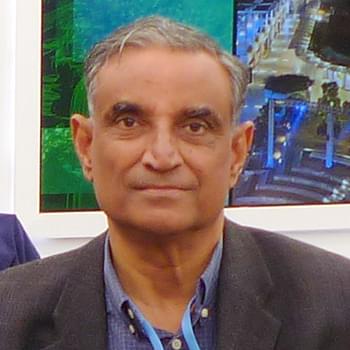
Priyadarshi R. Shukla
Co-Chair, Working Group III, Intergovernmental Panel on Climate Change (IPCC)
Priyadarshi R. Shukla is a Distinguished Professor at Global Center for Environment and Energy Ahmedabad University, India. He is currently a co-chair of the Working Group III (Mitigation) of the Intergovernmental Panel on Climate Change (IPCC).He has been a member of several prestigious national and international committees in the areas of energy, environment and development. He has co-authored/co-edited fifteen books and numerous publications in reputed international journals. He has also been on the editorial board of several international journals in the areas of energy, environment, climate change and development policies and modeling. He holds a Ph.D. from Stanford University.
Director, Future Energy and Mobility Structures, Wuppertal Institute for Climate, Environment and Energy

Stefan Lechtenböhmer
Director, Future Energy and Mobility Structures, Wuppertal Institute for Climate, Environment and Energy
Stefan Lechtenböhmer is responsible for applied research in regional, national and international energy and climate scenario analysis and scenarios for a Sustainable Low Carbon Society at the Wuppertal Institute for Climate, Environment, Energy. He has lead and conducted numerous studies on energy and emission scenario analysis. He currently works on topics around sustainable future energy systems with a focus on deep decarbonisation strategies in energy intensive processing industries.
He acquired his Ph.D. in energy and environmental management at the International Institute for Management University of Flensburg. He holds a university degree (diploma) in geography, economy and political sciences from the University of Münster. Stefan Lechtenböhmer is adjunct professor for "Sustainable Future Energy Systems" at Lund University, Sweden.
He is member of the Steering Group of the G8 Low Carbon Society Research Network and the UNFCCC Roster of Experts for GHG-Inventories, Policies & Measures, GHG-Projections.
Distinguished Fellow, The Energy and Resources Institute (TERI)
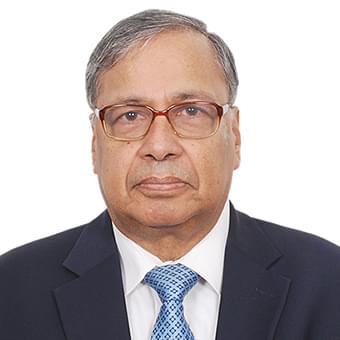
Ajay Shankar
Distinguished Fellow, The Energy and Resources Institute (TERI)
President & Representative Director, DSM Japan K.K.
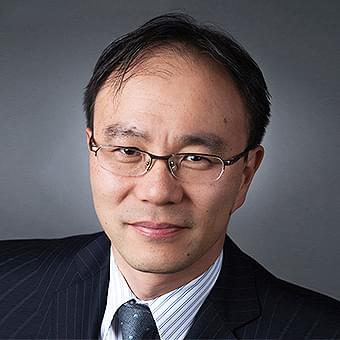
Yuji Nakahara
President & Representative Director, DSM Japan K.K.
Yuji Nakahara holds a Bachelor and Masters degree in Chemical Engineering from the University of Tokyo, MBA from Johnson Graduate School of Management, Cornell University, and Executive Education ELPⅢ from Wharton School of the University of Pennyslvania.
He is currently the President and Representative Director of DSM Japan K.K., being responsible for all DSM operations in Japan. He also sits on board seats of DSM affiliated joint ventures in Japan. Previous to this role, he held positions in the Netherlands and Switzerland.
He is on the Advisory Board of Catalyst Japan, a nonprofit organization accelerating progress for women through workplace inclusion. He is also an Advisory Board Member of the G-20Y Association, as well as the Program Committee Member charing the Global Demographic Developments Committee.
Before joining Royal DSM, he was a Partner at McKinsey & Company and previously, a chemical engineer at JGC Corporation, a leading Japanese plant engineering contractor.
Professor of International Law and Environmental Law, Graduate School of Environmental Studies, Nagoya University
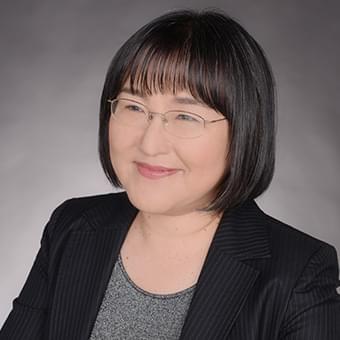
Yukari Takamura
Professor of International Law and Environmental Law, Graduate School of Environmental Studies, Nagoya University
After graduating from Kyoto University (Bachelor of Laws) and receiving Master in Laws (Public International Law) from Hitotsubashi University, Tokyo, Yukari Takamura was appointed Associate Professor of Public International Law at Shizuoka University (1998-2004), Associate Professor (2004-2006) and Professor (2006-2011) of Public International Law at Ryukoku University, and Professor of International Law at Nagoya University (since 2011), Japan. She also studied at Graduate School of University of Paris II (Panthéon-Assas), France (1993-1995) and was Visiting Researcher at University of London, U.K. (2000-2001).
She serves as member of governmental advisory bodies, among others, Science Council of Japan; Central Council of Environment; and Procurement Price Calculation Committee for Feed-in Tariff Scheme for Renewable Energy. She published many books and articles, among others, ‘Climate Change and Small Island Claims in the Pacific’, Ruppel, O.C. et al. eds., Climate Change: Legal Responses and Global Responsibility Volume I (2013); Chapter Japan in Lord, R. et al. eds., Climate Change Liability (2011): Niizawa, H. and Takamura, Y. eds., Dynamisms of Climate Change Policies (2015) (in Japanese).
Head of Climate Investment Funds (CIF)
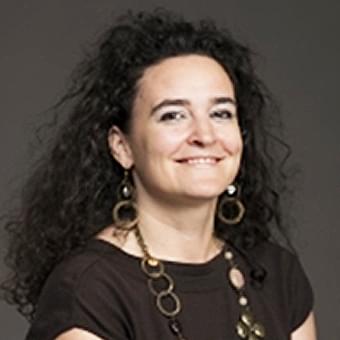
Mafalda Duarte
Head of Climate Investment Funds (CIF)
Mafalda Duarte is the head of the $8.3 billion Climate Investment Funds (CIF).
Under her leadership, the CIF has doubled down on work to accelerate global action on climate change, from first-of-its-kind investments and innovative, pilot approaches to a strong emphasis on learning and sharing of knowledge and technical expertise. She is currently leading the strategic and policy efforts to take the tried-and-tested CIF model to the next level, including through new mechanisms to mobilize finance from capital markets.
Recognizing that developing countries are at risk of bearing the brunt of climate change-related impacts – from droughts to floods and the human suffering that comes with them – Mafalda has made helping countries build climate-smart, resilient economies the focus of her career. Prior to taking the helm at the CIF in 2014, Mafalda led policy and corporate work and managed climate-related portfolios at the African Development Bank and the World Bank.
Senior Research Advisor, IGES
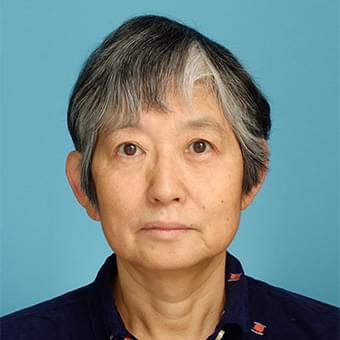
Moderator
Mikiko Kainuma
Senior Research Advisor, IGES
Mikiko Kainuma is currently a senior research advisor of IGES. She joined National Institute for Environmental Studies (NIES) in 1977, and since 1990, she has been engaging in the development of Asia-Pacific Integrated Model (AIM), which assesses policy options for stabilizing the global climate, particularly in the Asian-Pacific region. She led the Low Carbon Asia Project from 2009 to 2014. She served as an adjunct professor at Japan Advanced Institute of Science and Technology from 2003 to 2014. Her current research area of interest are in low carbon societies in Asia, energy systems and social development. She has published papers in international journal and books. These include Climate Policy Assessment (2003), Methodologies for leapfrogging to low carbon and sustainable development in Asia (2017), and Post-2020 Climate Action: Global and Asian Perspectives (2017). She received Academic Award by the Society of Environmental Science, Japan (2011), Remarkable Contribution to Science and Technology 2010: NISTEP (2010), and Nikkei Global Environmental Technology Award (1994). She was a Lead Author of Intergovernmental Panel on Climate Change (IPCC) Fourth and Fifth Assessment Report, and currently is a Lead Author of IPCC 1.5 degrees Special Report. She was selected “55 Japanese women with a sense of mission”, by Forbes Japan (2016).
Senior Policy Researcher, Sustainability Governance Centre, IGES
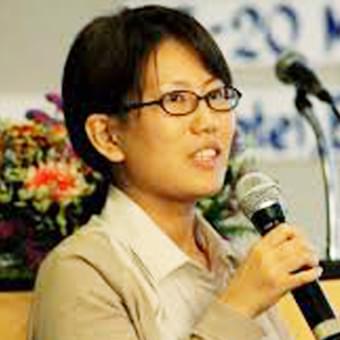
Nobue Amanuma
Senior Policy Researcher, IGES
Nobue Amanuma joined IGES in 2017. Previously, she was involved in the sustainable development process of Asia and the Pacific at the United Nations Economic and Social Commission for Asia and the Pacific. In the process for the 2030 Agenda for Sustainable Development, she supported the engagement of civil society and other stakeholders in regional discussions. She also contributed to analytical work on integration of economic, social and environmental dimensions of sustainable development and governance for the region’s policymakers. Her research interests include the social dimension of environmental sustainability and governance for sustainable development. She holds a Master of International Development from the University of Pittsburgh and has research and operational experience in international development.
Policy Researcher, Sustainability Governance Centre, IGES
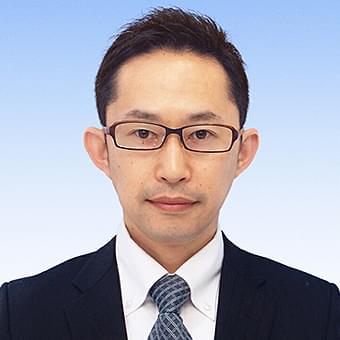
Shinji Onoda
Policy Researcher, Sustainability Governance Centre, IGES
Since the Rio+20 preparatory meeting in 2012, Shinji Onoda has participated in SDGs related negotiations, the UN General Assembly and the High Level Political Forum (HLPF) and wrote many papers and articles based on those experiences, which includes "SDGs and Business for the Future – Actions by private companies in Japan" (co-authored, 2018), "SDGs formulation background and latest trends - focused on follow-up and review for implementation" (2016) "Gigaton Gap - Climate Change and International Negotiations" (co-edited, 2015). He also serves as a visiting researcher at the Japan Center for Sustainable Environment and Society and a part-time lecturer at the Kanagawa Institute of Technology.
Director-General for Environmental Policy, Ministry of the Environment, Japan (MOEJ)
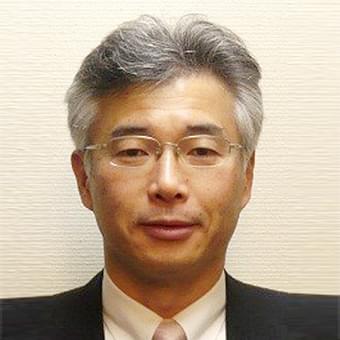
Tokutaro Nakai
Director-General for Environmental Policy, Ministry of the Environment, Japan (MOEJ)
Graduating from The University of Tokyo, Faculty of Law, Tokutaro Nakai entered Ministry of Finance in 1985. Mainly working at Budget Bureau, he moved to work at Toyama prefectural office. During his work in Toyama, he also helped to promote studies on Japan Sea. After that, he served several prominent positions such as Director at Public Relations, Financial Bureau planning officer, a Budget Examiner in charge of budget of Ministry of Agriculture, Forestry and Fisheries. He was transferred to Ministry of the Environment in July 2011. He also held several eminenet positions such as Director at Environmental Policy Bureau, Policy Planning Division, Director at Budget and Accounting Division, Minister’s Secretariat, Director at Personnel Division, Minister’s Secretariat, and Director-General at Waste Management and Recycling Department. He has been in the current position since July, 2017.
President & Representative Director, DSM Japan K.K.

Yuji Nakahara
President & Representative Director, DSM Japan K.K.
Yuji Nakahara holds a Bachelor and Masters degree in Chemical Engineering from the University of Tokyo, MBA from Johnson Graduate School of Management, Cornell University, and Executive Education ELPⅢ from Wharton School of the University of Pennyslvania.
He is currently the President and Representative Director of DSM Japan K.K., being responsible for all DSM operations in Japan. He also sits on board seats of DSM affiliated joint ventures in Japan. Previous to this role, he held positions in the Netherlands and Switzerland.
He is on the Advisory Board of Catalyst Japan, a nonprofit organization accelerating progress for women through workplace inclusion. He is also an Advisory Board Member of the G-20Y Association, as well as the Program Committee Member charing the Global Demographic Developments Committee.
Before joining Royal DSM, he was a Partner at McKinsey & Company and previously, a chemical engineer at JGC Corporation, a leading Japanese plant engineering contractor.
Senior Director, SDGs Mainstreaming Team, Operations Strategy Department, Japan International Cooperation Agency (JICA)
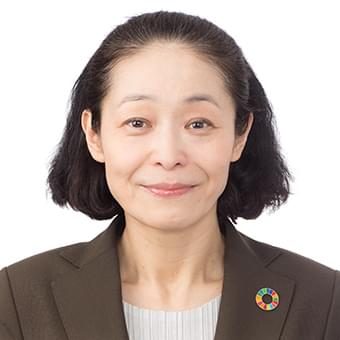
Akiko Oda
Senior Director, SDGs Mainstreaming Team, Operations Strategy Department, Japan International Cooperation Agency (JICA)
Since joining JICA in 1989, Akiko ODA has been assigned in Formulation, Monitoring, and Evaluation of International Cooperation Programs/Projects in Latin America and the Caribbean Region (1991-2015), including Resident Representative of Overseas Office (Dominican Republic, 2013-2015). She also has four years experience as an official of the Ministry of Agriculture, Forestry, and Fisheries (MAFF, 1997-1999) / Gender Equality Bureau, Cabinet Office (2004-2006) of Japanese Government. She was assigned to the current position, Senior Director for SDGs Mainstreaming, in September 2017.
Regional Director, UNEP Regional Office for Asia and the Pacific (UNEP-ROAP)

Dechen Tsering
Regional Director, UNEP Regional Office for Asia and the Pacific (UNEP-ROAP)
Dechen Tsering was appointed as the regional director of UN Environment in Asia and the Pacific in March 2017. As the regional arm of UN Environment, headquartered in Nairobi, Kenya, the Asia-Pacific office works with governments, local authorities and the private sector to develop and put into place cleaner and safer policies and strategies that encourage the efficient use of natural resources and reduce risks for humans and the environment.
Ms Tsering has held management and leadership positions with the United Nations and has over 25 years of experience in national government and intergovernmental organisations. She has been actively involved in intergovernmental negotiations as a key negotiator for least-developed countries and contributed to the establishment of the Least Developed Countries Fund and the Least Developed Countries Expert Group. She also has experience in the management of complex development projects.
She comes to UN Environment from the United Nations Framework Convention on Climate Change secretariat, where she served as director of the Finance, Technology and Capacity-building Programme. In that position, she supported international co-operation on mobilisation of finance, technology development and transfer, and capacity building to enable countries to take enhanced action on climate change. Prior to that position, she was the deputy regional director of UN Environment in Asia and the Pacific.
She holds a Ph.D. in forest economics and policy from the Federal Institute of Technology, Zurich. She also has a Master’s degree from Georgetown University and undergraduate degrees from the University of California, Berkeley.
Fellow, Sustainability Governance Centre, IGES
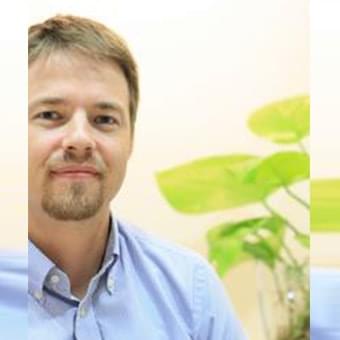
Moderator
Simon Hoiberg Olsen
Fellow, Sustainability Governance Centre, IGES
Simon Olsen is currently based in Japan, where he works as a senior policy researcher for IGES. Since 2010 he has researched and published papers on environmental governance, as well as institution building for cooperation on environment and sustainable development, both globally and regionally for Asia and the Pacific. He was a contributing author to UNEP’s Fifth Global Environmental Outlook Asia-Pacific. Prior to working with IGES he spent three years working for the UN Economic and Social Commission for Asia and the Pacific. There he was granted the opportunity to undertake capacity building on Green Growth policy tools. During that time he also helped draft Cambodia’s National Green Growth Roadmap. He was actively involved in the processes leading up to the Rio+20 conference, proposing measures to strengthen international environmental governance as well as the institutional framework for sustainable development. He is now heavily involved in several research initiatives on the Sustainable Development Goals (SDGs).
Simon is interested in culture and languages. He has a Masters Degree in Southeast Asian Studies from University of Copenhagen and is pursuing post-graduate studies on a part-time basis.
Principal Policy Researcher, IGES / CEO, PEAR Carbon Offset Initiative, Ltd.
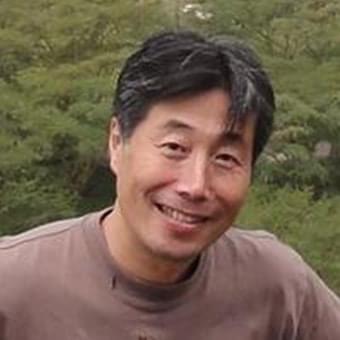
Naoki Matsuo
Principal Policy Researcher, IGES / CEO, PEAR Carbon Offset Initiative, Ltd.
Naoki Matsuo received his Ph.D. from Osaka University’s Post Graduate School of Science. He has been affiliated with IGES since 1998, at which time, just following adoption of the Kyoto Protocol, he was involved in providing a number of key policy proposals regarding the rule-making of the Kyoto Protocol. This included work supporting IGES’s engagement in the Clean Development Mechanism (CDM) scheme design process resulted to get approval of the first approved CDM methodology. He returned to IGES in 2017, where he currently focuses on examining areas for contributing to the rule making process of the Paris Agreement.
A climate change and energy expert, he has been involved in international negotiations prior to its convening of the first Conference of Parties (COP 1) in 1995 and engaging in the UNFCCC’s review process from the time of its establishment for more than two decade. In addition, he also manages a business working to promote solar home systems for off-grid households in developing countries.
Director, Climate and Energy Area, IGES
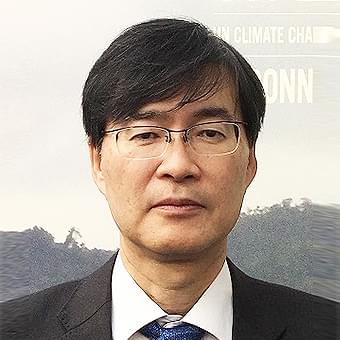
Yuji Mizuno
Director, Climate and Energy Area, IGES
Yuji Mizuno is leading the Climate and Energy Area of IGES. After working for a major think tank in Japan, he joined IGES in 2007 and was engaged with researches on a new international regime on climate change and international cooperation on the clean development mechanism for developing countries. From 2011 to 2016, he was serving for the Ministry of the Environment, Government of Japan, as a Director for International Negotiations and in charge for international negotiations under the UNFCCC, bilateral consultation for the Joint Crediting Mechanism (JCM) as well as the operating the national registry for compliance of the Kyoto Protocol. He participated COP21 in Paris as a lead negotiator for market mechanisms in Japanese delegation. He took his current position from 2016. He holds a Ph.D. degree in international relations from Waseda University, and is a part-time teacher at Faculty of Environmental Studies, Tokyo City University.
Policy Researcher, Kitakyushu Urban Centre, IGES

Junko Ota
Policy Researcher, Kitakyushu Urban Centre, IGES
Junko Ota has been engaged in international negotiation for the United Nations Framework Convention on Climate Change (UNFCCC) as a member of Japanese delegation; 2006-2008 as a liaison to the UNFCCC Secretariat at the Japanese Embassy in Germany and since 2018 from IGES, following the matters related to finance, adaptation fund and assistance to developing countries. 2012-2014, she lived in Indonesia to assist the Ministry of National Development Planning (BAPPENAS) with the development of Indonesia’s National Action Plan for Climate Change Adaptation as an expert of Japan International Cooperation Agency (JICA). Graduated from University of Hawaii (BA) and Rutgers (MA) in the United States.
Policy Researcher, Climate and Energy Area, IGES
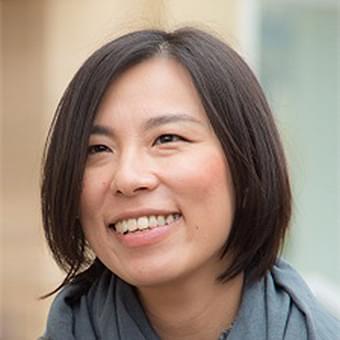
Eri Ikeda
Policy Researcher, Climate and Energy Area, IGES
Eri Ikeda joined the IGES in 2017. She works on the climate policy issues including the international negotiations with a particular focus on the stocktaking processes under the UNFCCC and energy policy. She holds a Master of Arts in Development Studies from the International Institute of Social Studies, Erasmus University Rotterdam, specialised in the environment and sustainable development. She is currently a Ph.D. candidate in the same institute.
Professor of International Law and Environmental Law, Graduate School of Environmental Studies, Nagoya University

Moderator
Yukari Takamura
Professor of International Law and Environmental Law, Graduate School of Environmental Studies, Nagoya University
After graduating from Kyoto University (Bachelor of Laws) and receiving Master in Laws (Public International Law) from Hitotsubashi University, Tokyo, Yukari Takamura was appointed Associate Professor of Public International Law at Shizuoka University (1998-2004), Associate Professor (2004-2006) and Professor (2006-2011) of Public International Law at Ryukoku University, and Professor of International Law at Nagoya University (since 2011), Japan. She also studied at Graduate School of University of Paris II (Panthéon-Assas), France (1993-1995) and was Visiting Researcher at University of London, U.K. (2000-2001).
She serves as member of governmental advisory bodies, among others, Science Council of Japan; Central Council of Environment; and Procurement Price Calculation Committee for Feed-in Tariff Scheme for Renewable Energy. She published many books and articles, among others, ‘Climate Change and Small Island Claims in the Pacific’, Ruppel, O.C. et al. eds., Climate Change: Legal Responses and Global Responsibility Volume I (2013); Chapter Japan in Lord, R. et al. eds., Climate Change Liability (2011): Niizawa, H. and Takamura, Y. eds., Dynamisms of Climate Change Policies (2015) (in Japanese).
Director, International Cooperation and Sustainable Infrastructure Office, Global Environmental Bureau, Ministry of the Environment, Japan (MOEJ)
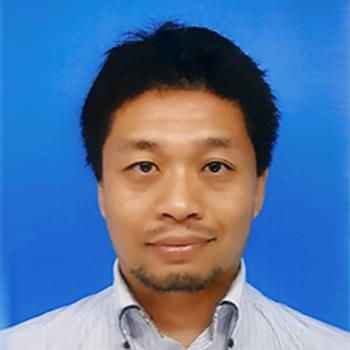
Ryuzo Sugimoto
Director, International Cooperation and Sustainable Infrastructure Office, Global Environmental Bureau, Ministry of the Environment, Japan (MOEJ)
Ryuzo Sugimoto is currently in charge of environmental cooperation between Asian and African countries, including promotion of environmental infrastructure in developing countries.
Before this position, he was dispatched to Asian Development Bank (ADB) as environment Specialist until June 2016 and was in charge of safeguarding including environment impact assessment, establishment and implementation of Japan Fund for Joint Crediting Mechanism (JFJCM), adaptation to climate change, and coordination with Japanese organisations.
Prior to joining ADB, he had over 13 years experience in various aspects of environment and sustainable development. He was involved in national policy development on climate change, including the road map for Japanese mid-term GHG reduction targets.
He holds a Master’s degree in Public Affairs from the School of Public and Environmental Affairs, Indiana University, USA; and a Master’s degree in Civil Engineering from the University of Tokyo, Japan.
National Project Manager, United Nations Development Organization (UNIDO) New Delhi Regional Office
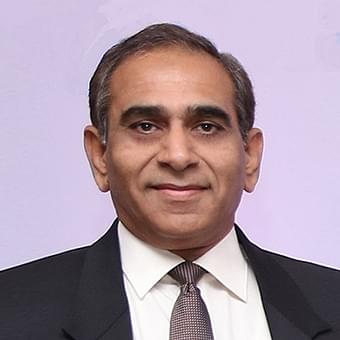
Anil Misra
National Project Manager, United Nations Development Organization (UNIDO) New Delhi Regional Office
Anil Misra started career at the Indian Institute of Technology in New Delhi (India) in 1983 and worked there till 1998, then worked for almost 12 years for TERI, 4 years at University of Siegen (Germany), one year for UNDP and 8 years for GIZ.
As programme advisor and portfolio manager in GIZ, he introduced new models to engage the productive applications of renewable energy and natural bio-oils in rural areas. As Secretary (1996-2006) of the Solar Energy Society of India, he brought professionalism at the helm of society affairs as a significant step in creating a voice for renewable energies in India.
Among the first post-grads of the international programme “Renewable Energy Use” way back in 1989 in Oldenburg in Germany, Dr Misra has always campaigned for recognition and promotion of renewable energies.
Head of Climate Investment Funds (CIF)

Mafalda Duarte
Head of Climate Investment Funds (CIF)
Mafalda Duarte is the head of the $8.3 billion Climate Investment Funds (CIF).
Under her leadership, the CIF has doubled down on work to accelerate global action on climate change, from first-of-its-kind investments and innovative, pilot approaches to a strong emphasis on learning and sharing of knowledge and technical expertise. She is currently leading the strategic and policy efforts to take the tried-and-tested CIF model to the next level, including through new mechanisms to mobilize finance from capital markets.
Recognizing that developing countries are at risk of bearing the brunt of climate change-related impacts – from droughts to floods and the human suffering that comes with them – Mafalda has made helping countries build climate-smart, resilient economies the focus of her career. Prior to taking the helm at the CIF in 2014, Mafalda led policy and corporate work and managed climate-related portfolios at the African Development Bank and the World Bank.
Senior Fellow, Industrial Energy Efficiency Division, The Energy and Resources Institute (TERI)
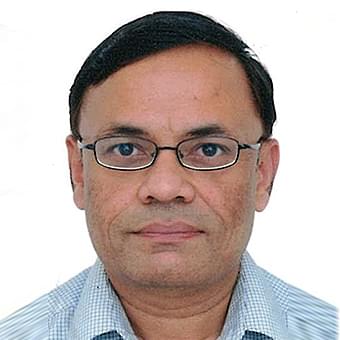
Prosanto Pal
Senior Fellow, Industrial Energy Efficiency Division, The Energy and Resources Institute (TERI)
Prosanto Pal is a Senior Fellow at the Industrial Energy Efficiency Division at The Energy and Resources Institute (TERI) in New Delhi. He has about 30 years of experience in the energy and environment sectors, among them 24 years at TERI. Among others, he has been closely involved in conducting energy audit studies; research on development, demonstration and diffusion of cleaner technologies among SMEs; and capacity building activities related to promoting energy efficiency.
Mr. Pal has been educated in India and the UK: Bachelor of Technology from Indian Institute of Technology (Delhi) in Chemical Engineering; Master’s of Science from University of Warwick (Coventry) in Manufacturing Systems Engineering and Master’s Degree from University of Strathclyde (Glasgow) in Process Engineering.
Consultant, Gujarat Industrial & Technical Consultancy Organisation (GITCO) Ltd.
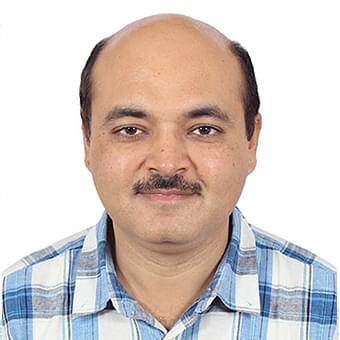
Ketan H. Kakkad
Consultant, Gujarat Industrial & Technical Consultancy Organisation (GITCO) Ltd.
Ketan Kakkad is working as a Consultant at Gujarat Industrial & Technical Consultancy Organisation (GITCO) Ltd.
He is a Production Engineer from Sardar Patel University, Anand, Gujarat and Diploma in Business Management from Bharatiya Vidya Bhavan, Mumbai.
He has 26 years of experience as a Techno Commercial Expert, among them 22 at GITCO. He had been involved in executing consultancy assignments of Preparing Project Report & Carryout Project Feasibility Studies in various areas, at MSME units and/or at cluster level. He had worked closely with Policy Makers at the State Government for Evaluation of different Government Schemes for its effective implementation.
Director, Kansai Research Centre, IGES / Professor Emeritus, Osaka University
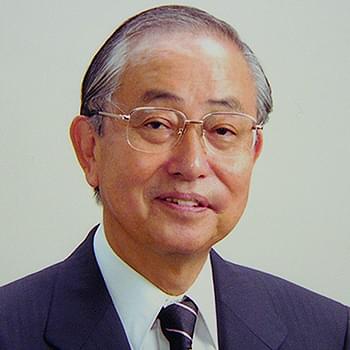
Yutaka Suzuki
Director, Kansai Research Centre, IGES / Professor Emeritus, Osaka University
After completing a Master’s Course at the Graduate School of Engineering, Osaka University, Yutaka Suzuki obtained his Ph.D. in engineering from the same university. In 1972, he became a professor at Osaka University. After serving as Dean of the Faculty of Engineering at Osaka University, President of the Himeji Institute of Technology, and Vice President of the University of Hyogo, he has served as Director of the IGES Kansai Research Centre since 2006. His current research areas include studies on the recycling-based society and new energy systems. As a member of external organizations, Yutaka Suzuki has served as the Chairman of the Japan Society of Energy and Resources; Chairman of the Science and Technology Advisory Committee for MSF; and a member of the Energy Technology Task Force, Osaka Science Technology Center, Global Environment Forum-Kansai.
Programme Manager, Kansai Research Centre, IGES
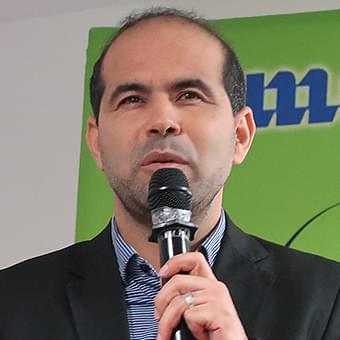
Moderator
Abdessalem Rabhi
Programme Manager, Kansai Research Centre, IGES
Abdessalem Rabhi, from Tunisia, is a holder of Ph.D. in comprehensive economic policies. He has joined IGES since 2007. He was assigned to conduct various projects related to business and environment, mainly those regarding corporate environmental managements and low carbon technology transfer and application. Currently, he is a task manager of projects related to the application of Japanese low carbon technologies in developing countries in Asia and the Pacific.
JSPS-UNU Postdoctoral Fellow, United Nations University Institute for the Advanced Study of Sustainability (UNU-IAS)
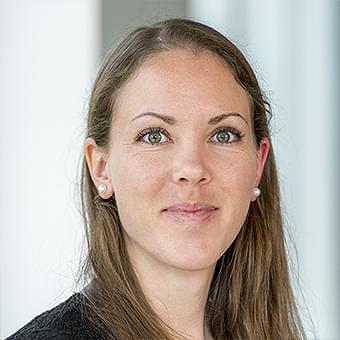
Moderator
Lisanne Groen
JSPS-UNU Postdoctoral Fellow, United Nations University Institute for the Advanced Study of Sustainability (UNU-IAS)
Lisanne Groen is a JSPS-UNU Postdoctoral Fellow at the United Nations University Institute for the Advanced Study of Sustainability (UNU-IAS) since November 2016.
At UNU-IAS, her research focuses on European low-carbon technology transfer policies. She analyses and evaluates the low-carbon technology transfer policies pursued by Germany, France, the UK and the European Union (EU), as well as multilateral partnerships.
She was awarded a Ph.D. in political science by the Vrije Universiteit Brussel (Brussels, Belgium) in October 2016. Her doctoral thesis addresses the effectiveness of the EU in international climate change (UNFCCC) and biodiversity (CBD) negotiations over time. Since 2012, Lisanne has attended several CBD and UNFCCC Conferences of the Parties for her research.
Before starting her Ph.D., Lisanne was a trainee at the Directorate General for Agriculture of the European Commission in Brussels, Belgium, working on EU Free Trade Agreements with third countries.
She holds a Master of Science in political science and a Bachelor of Arts in European Studies (University of Amsterdam, the Netherlands). She is Dutch.
Research Leader, Strategic and Quantitative Analysis Centre, IGES
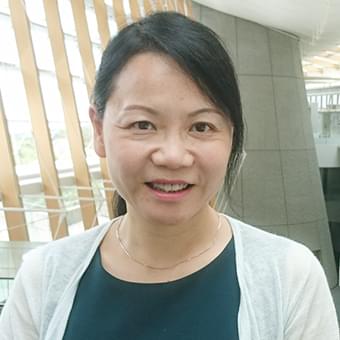
Xin Zhou
Research Leader, Strategic and Quantitative Analysis Centre, IGES
Xin Zhou is Research Leader of the Strategic and Quantitative Analysis Centre (QAC) at the Institute for Global Environmental Strategies (IGES). Currently, she is leading quantitative policy research in the areas of SDG interlinkages analysis and visualisation, green investment and green jobs assessment and water-energy nexus study in Ganges River. In recent years, she led a wide array of policy assessment works including the labour market implications of nationally determined contributions (NDC) in Indonesia, assessment of carbon pricing and border carbon adjustment on industrial competitiveness and carbon leakage in Japan, assessment of embodied emissions and international trade for Asian countries, assessment of the employment effects of environmental goods and services sectors in northeast Asian countries, and the development of the Japan 2050 Low Carbon Navigator, etc. She received Ph.D. in Environmental Studies from Nagoya University, Japan, in 2007. Before that, she had been working with the Policy Research Center for Environment and Economy (PRCEE), the Ministry of Environmental Protection, China, since 1994. As Director of Policy Research Division, she led many policy research supporting national policy-making on the environment. She received several national scientific achievement prizes for her academic and social contributions to the Chinese government.
Research Manager, Strategic and Quantitative Analysis Centre, IGES
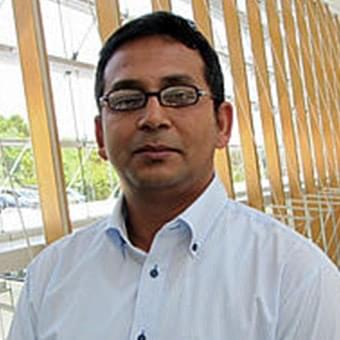
Mustafa Moinuddin
Research Manager, Strategic and Quantitative Analysis Centre, IGES
Mustafa Moinuddin is a senior researcher and research manager at the Strategic and Quantitative Analysis Centre of the Institute for Global Environmental Strategies (IGES). With more than 12 years of work experience in the field of international development, he is involved in several research activities at IGES relating to sustainable development and transition to green economy, green jobs and labour market assessment, sustainable infrastructure, capacity building for low carbon development, and Japan’s long-term energy scenarios. Mustafa is one of the core members of IGES activities on Sustainable Development Goals (SDGs), particularly focusing on interlinkages among the goals and targets. Mustafa’s other research expertise and interests include energy market integration, regional cooperation, and international trade. Previously he held research positions at the ADB Institute and the WIPO Japan Office, and has taught at several universities in Japan. Mustafa holds a masters in international law and economics from World Trade Institute, University of Bern (Switzerland) and a doctorate in international development studies from Yokohama National University (Japan).
Researcher, Strategic and Quantitative Analysis Centre, IGES
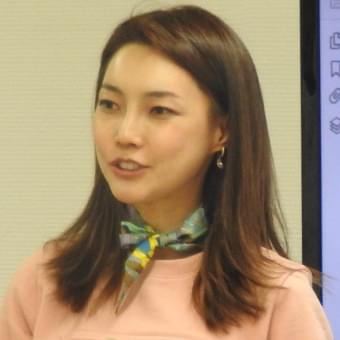
Sunhee Suk
Researcher, Strategic and Quantitative Analysis Centre, IGES
Sunhee Suk is a researcher of Strategic and Quantitative Analysis Centre, Institute for Global Environmental Strategies (IGES). Her research areas are environment and climate change related policies in Northeast Asia. Currently she is leading a project of the carbon market linkage in North East Asia in IGES.
Contributing to SDGs flagship publication, she extends the SDGs analysis framework in a way to incorporate business as a competent body for the SDGs achievement. She holds a master degree of urban engineering from University of Tokyo and a Ph.D. in Economics from Kyoto University of Japan.
Senior Economist, United Nations Environment Programme
(UN Environment)
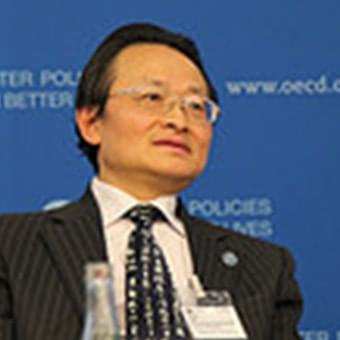
Sheng Fulai
Senior Economist, United Nations Environment Programme (UN Environment)
Sheng Fulai is a senior economist at the United Nations Environment Programme (UN Environment). He led the UN Environment report on "Towards a Green Economy: Pathways to Sustainable Development and Poverty Eradication" and the UN system-wide report "Working towards a balanced, inclusive green economy", both published in 2011. He recently focuses on promoting integrated planning for sustainable infrastructure in contribution to the Sustainable Development Goals. For more than 30 years, Mr Sheng has served the Chinese Ministry of Finance, the World Bank, the World Wide Fund for Nature (WWF) International, Conservation International and, since 2005, UN Environment. His major works include green economy policy assessment, integrated policy making, green national accounting, and comparative assessment of development options.
Academic Director / Academic Programme Officer, United Nations University Institute for the Advanced Study of Sustainability (UNU-IAS)
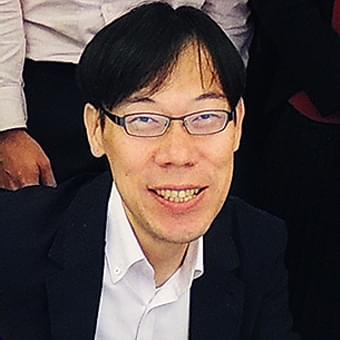
Osamu Saito
Academic Director / Academic Programme Officer, United Nations University Institute for the Advanced Study of Sustainability (UNU-IAS)
Osamu Saito is Academic Director at UNU - IAS, and Visiting Associate Professor at the University of Tokyo. As an expert in the field of biodiversity and ecosystem services, he has been working on the interlinkages between ecological, human and social systems through sustainability science approaches. His research experiences include socio-ecological studies on the ecosystem services provided by traditional rural production landscapes (Satoyama) in both Japan and other Asian countries. At UNU he has been also activity promoting various activities for the Intergovernmental Platform on Biodiversity and Ecosystem Services (IPBES). He has been a managing editor of the Sustainability Science journal published by Springer since 2011.
Director, Research and Publications, Strategic Management Office, IGES

Moderator
Mark Elder
Director, Research and Publications, Strategic Management Office, IGES
Mark Elder is Director of Research and Publications, Strategic Management Office at the Institute for Global Environmental Strategies (IGES) in Japan. He has led various research projects on environmental and sustainability governance issues including: sustainable development goals, Rio+20 institutional framework for sustainable development, transboundary air pollution, regional environmental cooperation in East Asia, economic integration, biofuels, and local governance. Before joining IGES in 2006, he was Assistant Professor of Political Economy and International Relations at Michigan State University. He received a Ph.D. in political science from the Department of Government, Harvard University. On SDGs, he coauthored a policy report on “Scoring the Sustainable Development Goals: Pathways for Asia and the Pacific,” and an article in the journal Sustainability on “An Optimistic Analysis of the Means of Implementation for Sustainable Development Goals: Thinking about Goals as Means”.
Programme Manager,
Climate and Energy Area, IGES
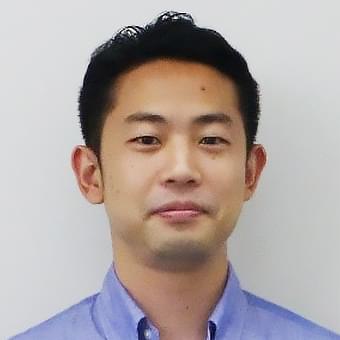
Kentaro Takahashi
Programme Manager, Climate and Energy Area, IGES
Kentaro Takahashi obtained his master’s degree from Graduate School of Agricultural and Life Sciences, The University of Tokyo in Japan on the monitoring of land cover change in East Kalimantan, Indonesia. After serving as a consultant at the consulting company which provided CDM development services etc, he joined IGES in 2009. He started his work on the CDM/JI capacity building programme in Asian countries. He currently engages MRV programme under the Joint Crediting Mechanism (JCM) for 9 partner countries in Asia and Pacific region.
Director of International Negotiations, Market Mechanisms Office, Climate Change Policy Division, Global Environmental Bureau, Ministry of the Environment, Japan (MOEJ)
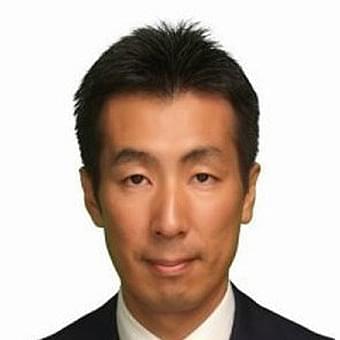
Kazuhisa Koakutsu
Director of International Negotiations, Market Mechanisms Office, Climate Change Policy Division, Global Environmental Bureau, Ministry of the Environment, Japan (MOEJ)
In the Ministry, Kazuhisa Koakutsu is responsible for implementing the Joint Crediting Mechanism (JCM) and in charge of international negotiation process regarding market-based mechanisms under the UNFCCC. He has been engaging in the international climate policy related to market mechanisms such as the clean development mechanism (CDM), emission trading scheme (ETS) and JCM.
Deputy Director for Financing Cooperation, Coordinating Ministry for Economic Affairs, Indonesia / Head of Indonesia JCM Secretariat
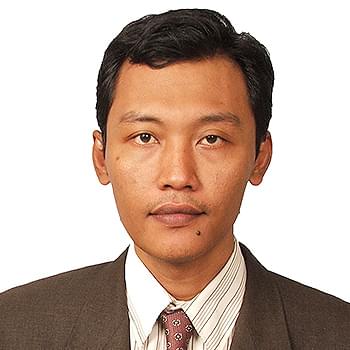
Cahyadi Yudodahono
Deputy Director for Financing Cooperation, Coordinating Ministry for Economic Affairs, Indonesia / Head of Indonesia JCM Secretariat
Cahyadi Yudodahono was previously the Deputy Director for Multilateral Economic Cooperation, Coordinating Ministry for Economic Affairs. He also served as Head of Sub Division for Multilateral Financing Cooperation, Coordinating Ministry for Economic Affairs and official for Capital Market Supervisory Agency and Financial Institution, Ministry of Finance. He completed his Bachelor’s in Economics majoring in Accounting from Sekolah Tinggi Ilmu Ekonomi Indonesia, and gained a Master’s in International Development from the International University of Japan, as well as a Master’s in Economic Science, University of Indonesia.
JCM Secretariat, Environment and Climate Fund, Ministry of Environment and Tourism, Mongolia
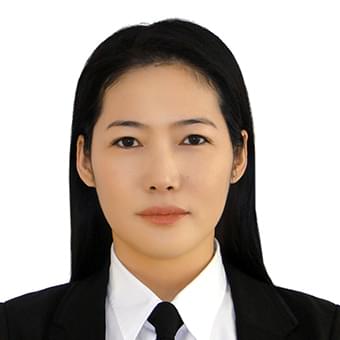
Otgontsetseg Luvsandash
JCM Secretariat, Environment and Climate Fund, Ministry of Environment and Tourism, Mongolia
Otgontsetseg Luvsandash has worked in the Ministry of Environment and Tourism of Mongolia since 2015 and is currently in charge of the Secretariat of the Joint Crediting Mechanism between Japan and Mongolia. Previously, she was the Public Relations Manager at the Business Council of Mongolia, the largest NGO representing all investors in Mongolia, domestic and foreign, on business climate issues. Prior to joining the Business Council of Mongolia, she worked as an Environmental Specialist and Public relations manager at MCA-M Energy and Environmental Project. She completed her Bachelor’s in Journalism and Master’s in State administration management from the National University of Mongolia.
Director and General Manager, Solution Business Division, YUKO-KEISO Co.,Ltd.
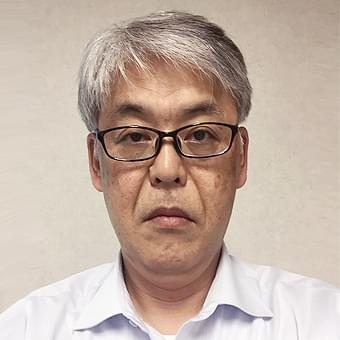
Toshihide Sugawara
Director and General Manager, Solution Business Division, YUKO-KEISO Co.,Ltd.
Toshihide Sugawara began work as a start-up engineer at YUKO-KEISO Co., Ltd. in 1984, and has had more than 20 years of experience in central monitoring facilities and automated control machines for buildings. In 2014 he was promoted to Head of the Vietnam Project Development Unit as well as Director of the Technology Section. In 2015 he took up the position of Director of YUKO Vietnam. In 2017 he established a specialized section for overseas projects, and assumed the role of Director.
Policy Researcher,
Climate and Energy Area, IGES
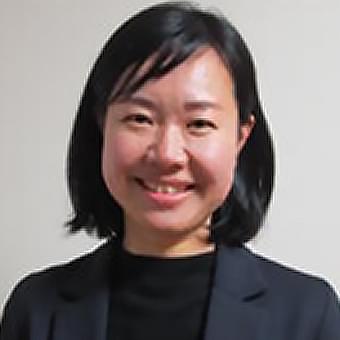
Moderator
Chisa Umemiya
Policy Researcher, Climate and Energy Area, IGES
Chisa Umemiya is specialised in the transparency of mitigation actions, capacity building, market mechanisms and REDD-plus. She has worked on research and projects for implementation on these issues in developing countries, especially in Asia. Before joining IGES, she worked as an exchange researcher at Faculty of Forestry, Kasetsart University in Thailand. She also worked for the Greenhouse Gas Inventory Office of Japan at the National Institute for Environmental Studies (NIES). She holds her Ph.D. from School of Human Sciences, Waseda University in Tokyo on the needs of capacity development for REDD-plus.
President, IGES

Kazuhiko Takeuchi
President, IGES
Kazuhiko Takeuchi graduated from the Department of Geography, the University of Tokyo in 1974. He obtained M.Agr. and Ph.D. from the Graduate School of Agriculture, the University of Tokyo. He served as a Professor at the Asian Natural Environmental Science Center, and as Professor at the Graduate School of Agricultural and Life Science at the University of Tokyo from 1997 to 2012. He also served as a Vice-Rector and Senior Vice-Rector at the United Nations University from 2008 to 2016. He has been Director and Professor/Project Professor of the Integrated Research System for Sustainability Science (IR3S) at the University of Tokyo since 2012. He took up the position as President, Institute for Global Environmental Strategies (IGES) in July 2017. He has served, inter alia, as a Vice-President of the Science Council of Japan, Chair of the Central Environmental Council, Government of Japan, and Editor-in-Chief of the journal Sustainability Science (Springer Nature).
He specialises in landscape ecology, landscape planning, and sustainability science.
Satoyama Initiative Coordinator, United Nations University Institute for the Advanced Study of Sustainability (UNU-IAS)

Eiji Tanaka
Satoyama Initiative Coordinator, United Nations University Institute for the Advanced Study of Sustainability (UNU-IAS)
Eiji Tanaka joined the United Nations University Institute for the Advanced Study of Sustainability (UNU-IAS) as Coordinator of the International Satoyama Initiative (ISI) in April 2018. Before joining UNU-IAS, Mr. Tanaka worked at the Ministry of the Environment of Japan and was primarily engaged in the field of environmental diplomacy related to global environmental issues, coordinating with the United Nations Environment Programme (UNEP) and the International Renewable Energy Agency, among others. Mr. Tanaka also worked at the Embassy of Japan in Kenya as Deputy Permanent Representative of Japan to UNEP. Mr. Tanaka holds a master’s degree in geography from the University of Tokyo.
Head, Intergovernmental Science-Policy Platform on Biodiversity and Ecosystem Services (IPBES) Technical Support Unit for the Asia-Pacific Regional Assessment (TSU-AP)
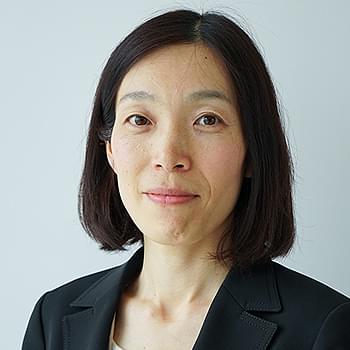
Noriko Moriwake
Head, Intergovernmental Science-Policy Platform on Biodiversity and Ecosystem Services (IPBES) Technical Support Unit for the Asia-Pacific Regional Assessment (TSU-AP)
Noriko Moriwake joined IPBES TSU-AP in April 2018. The TSU provides support for publication of the IPBES Regional Assessment Report for Asia and the Pacific approved in March 2018 and promotes its uptake in the wider society. Prior to joining the TSU, she worked at the Ministry of the Environment of Japan, primarily in the field of international cooperation related to biodiversity including the Convention on Biological Diversity (CBD) and the Ramsar Convention. She also worked at UNU-IAS for the promotion of the Satoyama Initiative, and at the CBD Secretariat in Montreal, Canada.
Ph.D. Candidate, Centre for Global Food and Resources, Faculty of Professions, The University of Adelaide
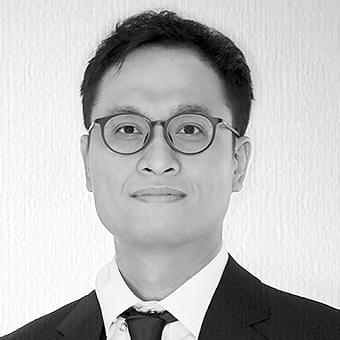
Sacha Amaruzaman
Ph.D. Candidate, Centre for Global Food and Resources, Faculty of Professions, The University of Adelaide
Sacha Amaruzaman is an ecosystem services specialist, who worked at the World Agroforestry Centre (ICRAF) based in Bogor, Indonesia from 2014-2017. During his tenure with ICRAF, he co-managed the Climate-Smart, Tree-Based, Adaptation and Mitigation in Asia (Smart Tree-Invest), an action research project that aims to develop co-investment schemes that can simultaneously improve smallholders’ resiliency and the landscape quality in the remote areas in Indonesia, the Philippines, and Vietnam. He obtained his master degree from Wageningen University, the Netherlands, majoring in Environmental Science. In 2017, he started his Ph.D. candidature at the Centre for Global Food and Resources of the University of Adelaide in Australia. His research mainly focuses on the smallholder’s vulnerability and adaptation practices, and the socio-economic and institutional aspects of the payment for ecosystem services.
Director, Agriculture Promotion Office, Agriculture Policy Division, Department of Industry and Tourism, Sado City Government
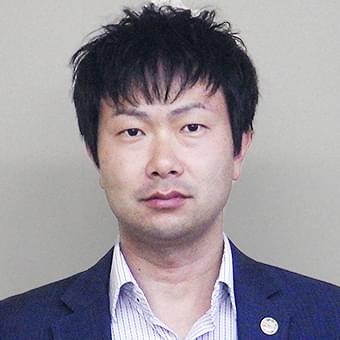
Takayuki Nishimaki
Director, Agriculture Promotion Office, Agriculture Policy Division, Department of Industry and Tourism, Sado City Government
Takayuki Nishimaki took responsibility for the development of specially designated areas, rural revitalization and biomass energy development in 2004 when the ten municipalities on Sado Island merged into Sado City. Assigned to the biodiversity promotion office of the agriculture, forestry and fisheries division from 2010, he played a leading role in the management and promotion of Globally Important Agricultural Heritage Systems (GIAHS), as well as the strategic marketing of the Sado-brand rice centering on that certified in the name of the Island’s endemic Ibex bird Nipponia Nippon. He promoted the implementation of the Sado local biodiversity strategy and action plan as the director of the SATOYAMA promotion office since 2016. He has been in the current position since 2018.
Programme Director, Natural Resources and Ecosystem Services Area, IGES

Moderator
Henry Scheyvens
Programme Director, Natural Resources and Ecosystem Services Area, IGES
Henry Scheyvens holds a Ph.D. in Political Science from Monash University and a MPhil in Development Studies from Massey University. He has taught at several universities in New Zealand, Australia and Japan. He joined IGES in 2004, where he now serves as the Area Leader of the Natural Resources and Ecosystems Services Area. His research interests centre around poverty, livelihoods and rights issues. In the past few years, his research has focused on timber legality and sustainability, participatory forest mapping and monitoring, REDD+ readiness, and inclusive financial services.
Principal Policy Researcher, IGES / CEO, PEAR Carbon Offset Initiative, Ltd.

Naoki Matsuo
Principal Policy Researcher, IGES / CEO, PEAR Carbon Offset Initiative, Ltd.
Naoki Matsuo received his Ph.D. from Osaka University’s Post Graduate School of Science. He has been affiliated with IGES since 1998, at which time, just following adoption of the Kyoto Protocol, he was involved in providing a number of key policy proposals regarding the rule-making of the Kyoto Protocol. This included work supporting IGES’s engagement in the Clean Development Mechanism (CDM) scheme design process resulted to get approval of the first approved CDM methodology. He returned to IGES in 2017, where he currently focuses on examining areas for contributing to the rule making process of the Paris Agreement.
A climate change and energy expert, he has been involved in international negotiations prior to its convening of the first Conference of Parties (COP 1) in 1995 and engaging in the UNFCCC’s review process from the time of its establishment for more than two decade. In addition, he also manages a business working to promote solar home systems for off-grid households in developing countries.
Special Research Advisor, IGES
Chair, ICLEI Japan
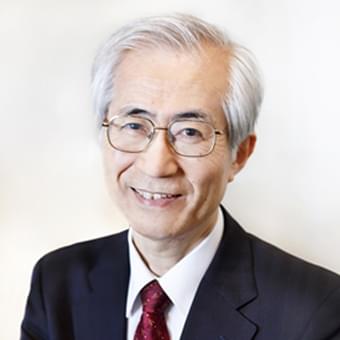
Hironori Hamanaka
Special Research Advisor, IGES / Chair, ICLEI Japan
Hironori Hamanaka is the Special Research Advisor at the Institute for Global Environmental Strategies (IGES). He served as the Chair of IGES Board of Directors from April 2007 to June 2017. He is the Chair of ICLEI Japan since July 2005. He was teaching at Keio University as a Professor from 2004 to 2010, and previously served as the Vice-Minister for Global Environmental Affairs as well as other important positions at the Ministry of the Environment.
While serving with the Government of Japan for more than 35 years, he devoted his administrative career to intergovernmental negotiations in areas including the Kyoto Protocol and its implementing rules, and the development of national policies to implement the Protocol. Based on his professional career, he served as a Co-chair of the Compliance Committee under the Kyoto Protocol and the Chair of its Facilitative Branch from 2006 to 2008. He gained a B.A. in Engineering from the University of Tokyo in 1967.
Manager, Environment & Energy Policy Bureau, Keidanren
(Japan Business Federation)
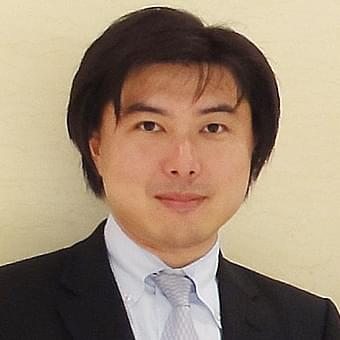
Kiyoshi Tanigawa
Manager, Environment & Energy Policy Bureau, Keidanren (Japan Business Federation)
Kiyoshi Tanigawa has been responsible for climate change and energy policy since 2016 at Keidanren, spearheading the "Commitment to a Low Carbon Society" (a voluntary initiative of the Japanese private sector). Prior to his current post, he was in charge of trade policy, international cooperation policy, industry policy, science-technology-innovation policy, growth strategy, public administration reform, regulatory reform, and earthquake disaster reconstruction.
He holds Masters Degrees from the University of Tokyo, Columbia University, London School of Economics and Political Science (LSE), and a B.A. in Economics from the University of Tokyo.
Distinguished Fellow, The Energy and Resources Institute (TERI)

Ajay Shankar
Distinguished Fellow, The Energy and Resources Institute (TERI)
Director, Research Institute for Future Design, Kochi University of Technology / Program Director, Research Institute for Humanity and Nature (RIHN)
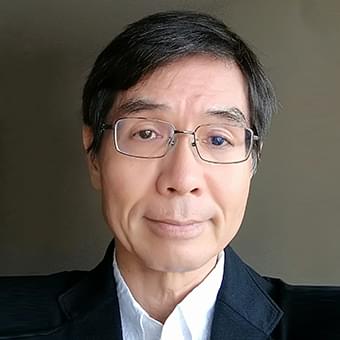
Tatsuyoshi Saijo
Director, Research Institute for Future Design, Kochi University of Technology / Program Director, Research Institute for Humanity and Nature (RIHN)
Tatsuyoshi Saijo is currently Director of Research Institute for Future Design at Kochi University of Technology and Program Director of Research Institute for Humanity and Nature after teaching at University of California, Osaka University, Hitotsubashi University and so on.
His research fields are public economics and experimental economics. His current interest is a new emerging field called “Future Design”. We say that an individual exhibits futurability when (s)he experiences an increase in happiness as a result of deciding and acting to forego current benefits as long as it enriches future generations. Parents can reduce their own foods and make them happy by giving the parts to their children. The fundamental question is whether we can extend this concept to future generations without being related to blood.
Deputy Director-General, Global Environment Bureau, Ministry of the Environment, Japan (MOEJ)
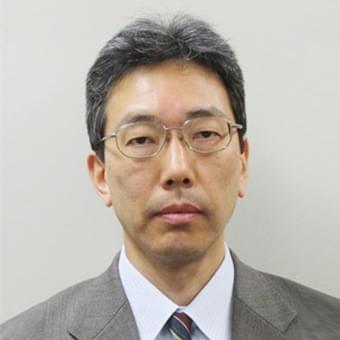
Hiroshi Ono
Deputy Director-General, Global Environment Bureau, Ministry of the Environment, Japan (MOEJ)
Hiroshi Ono was born in Okayama Prefecture in 1963. He was employed by then Environment Agency (current Ministry of the Environment) in 1987 and worked on various environmental issues including water quality management, air quality management, waste management and recycling, international environmental cooperation, global environmental research, environmental impact assessment, and site remediation from radioactive contamination.
Since September 2017, he has been working on global environmental issues including, among others, UNFCCC climate negotiations, G7/G20 environmental issues, bilateral environmental cooperation mainly with Asia-Pacific countries in his current position.
Co-Chair, IPCC Task Force on National Greenhouse Gas Inventories (TFI) / Principal Researcher, IGES
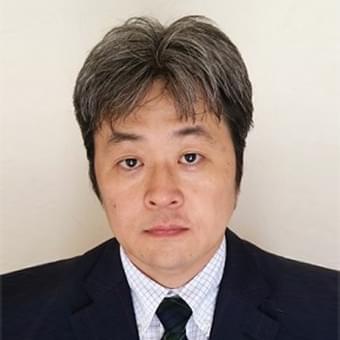
Kiyoto Tanabe
Co-Chair, IPCC Task Force on National Greenhouse Gas Inventories (TFI) / Principal Researcher, IGES
Kiyoto Tanabe majored in meteorology at the Graduate School of the University of Tokyo and received his MSc degree (geophysics) in 1993. His Master’s thesis focused on an estimation of CO2 uptake by ocean basins through an application of a two-layer upwelling-diffusion model. Mr. Tanabe joined the Technical Support Unit of the IPCC TFI in 1999, serving as Unit Head from April 2013 through October 2015. He has been engaged in various international activities related to climate change research and policy including development of the 2006 IPCC Guidelines for National Greenhouse Gas Inventories, and participation in the UNFCCC Consultative Group of Experts on National Communications from non-Annex I Parties, among others. Mr. Tanabe was elected as a Co-Chair of the IPCC TFI at the IPCC’s 42th Session held in October 2015.
Special Research Advisor, IGES
Chair, ICLEI Japan

Hironori Hamanaka
Special Research Advisor, IGES / Chair, ICLEI Japan
Hironori Hamanaka is the Special Research Advisor at the Institute for Global Environmental Strategies (IGES). He served as the Chair of IGES Board of Directors from April 2007 to June 2017. He is the Chair of ICLEI Japan since July 2005. He was teaching at Keio University as a Professor from 2004 to 2010, and previously served as the Vice-Minister for Global Environmental Affairs as well as other important positions at the Ministry of the Environment.
While serving with the Government of Japan for more than 35 years, he devoted his administrative career to intergovernmental negotiations in areas including the Kyoto Protocol and its implementing rules, and the development of national policies to implement the Protocol. Based on his professional career, he served as a Co-chair of the Compliance Committee under the Kyoto Protocol and the Chair of its Facilitative Branch from 2006 to 2008. He gained a B.A. in Engineering from the University of Tokyo in 1967.
Executive Director, IGES
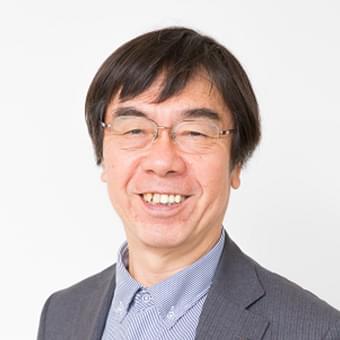
Hideyuki Mori
Executive Director, IGES
Hideyuki Mori is a graduate of the School of Engineering, Kyoto University. He joined IGES in 2003. Prior to joining IGES, he served as Environment Specialist at the Asian Development Bank, Senior Environmental Coordinator of the United Nations High Commissioner of Refugees, Director of the Office of Research and Information at the Global Environment Issues Division of the Environment Agency of Japan (present Ministry of the Environment), and as Portfolio Manager of the Division of GEF at the United Nations Environment Programme. He was a professor at Keio University from 2008-2010. He has served as the Executive Director of IGES since 2010.